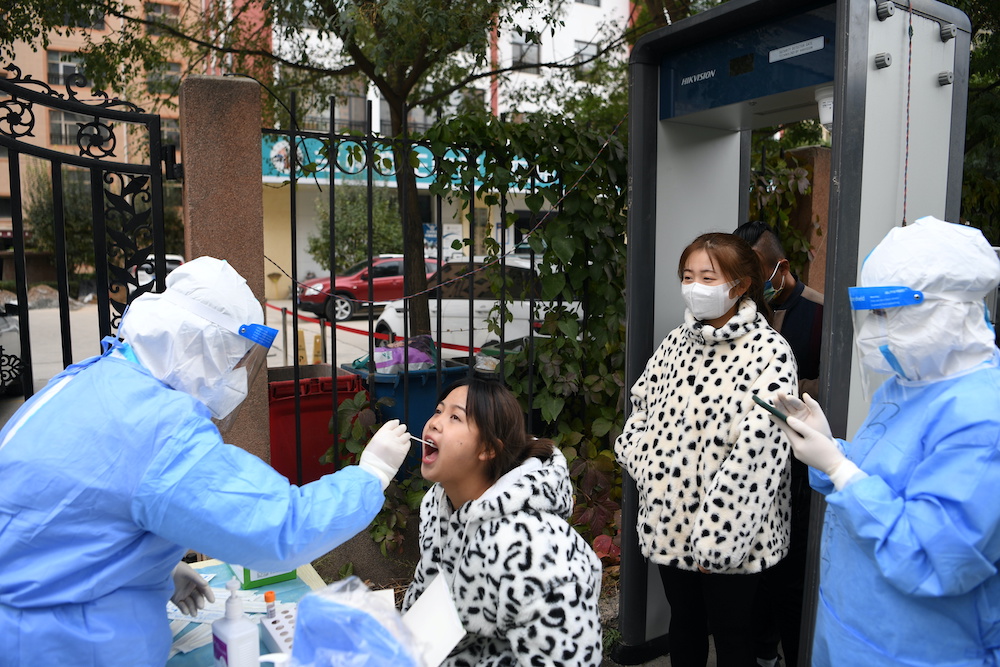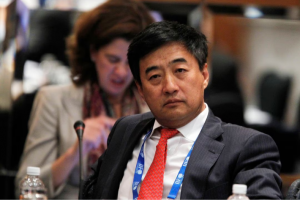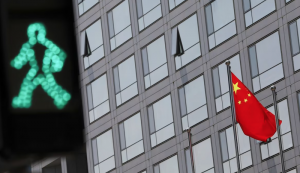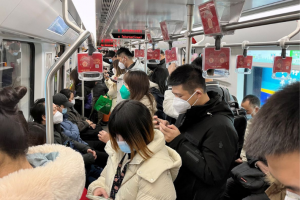Authorities in China imposed a lockdown on a city of four million people on Tuesday in a bid to curb a spike in Covid-19 cases in the country’s north. Residents in Lanzhou were told not to leave home except in emergencies.
Beijing imposed strict border controls after new outbreaks of the coronavirus, first detected in China in late 2019, in a bid to slow the number of cases to a trickle and allowing the economy to bounce back.
But while many other countries in Asia are beginning to open up and seeking to find ways to live with the virus, China has maintained a zero-Covid approach, which has led to harsh local lockdowns imposed over relatively small numbers of cases.
Tuesday’s fresh restrictions came as China reported 29 new domestic infections – with just six cases in Lanzhou, the provincial capital of northwestern province Gansu.
Residents of Lanzhou will be required to stay at home, authorities said in a statement.
Officials said the “entry and exit of residents” would be strictly controlled and limited to essential supplies or medical treatment.
Bus and taxi services had already been suspended in the city, and state media said on Tuesday that Lanzhou station had suspended more than 70 trains, including key routes to major cities like Beijing and Xi’an.
Flights to Lanzhou were also being cancelled, with a Southern Airlines representative saying that all their flights from Beijing’s Daxing airport to Lanzhou were cancelled due to public safety, without any date given to resume.
China’s latest outbreak has been linked to the contagious Delta variant, with the tally from the latest outbreak hitting 198 cases in a dozen provincial areas since October 17.
Health officials have warned that more infections may emerge as testing is ramped up in the coming days to fight the outbreak, which has been linked to a group of domestic tourists who travelled from Shanghai to several other provinces.
Mass testing is underway in 11 provinces and authorities have suspended many inter-provincial tour groups.
Faster Testing Urged
While the country’s case numbers are extremely low compared with elsewhere in the world, authorities are determined to stamp out the latest outbreak with the Winter Olympics just over 100 days away.
Indeed, top officials have demanded faster and more accessible Covid-19 testing services in its latest effort to reinforce its zero-tolerance policy against the virus, even when cities have already scrambled to test millions in just a few days amid outbreaks.
Frequent testing, and sometimes mass testing, is standard practice in China‘s containment of domestically transmitted outbreaks in the past year, but health authorities say testing services remain unsatisfactory in parts of China amid flare-ups.
“Small clusters and sporadic infections have occurred in some areas, exposing problems such as the unreasonable locations of nucleic acid testing agencies, inconvenient services and delays in the returning of results,” state media reported on Tuesday, citing the National Health Commission (NHC).
NHC officials said testing agencies should provide 24-hour services to the public and strive to have results within six hours for those who volunteer to be tested, according to state media reports.
They said in September that cities with over 5 million people should have the capacity to test everyone within three days.
While China is yet to approve self-testing kits for diagnosing Covid-19, swab tests that require professional labs to process samples are widely available.
Local governments have recently cut prices of swab tests, with certain tests charging as little as 13 yuan ($2.00) in Beijing.
Warnings in Beijing
On Monday, strict stay-at-home orders were imposed on tens of thousands of people in northern China.
In Beijing – which reported three new cases on Tuesday – access to tourist sites was limited and residents advised not to leave the city unless necessary.
Some 23,000 residents in one housing compound in Changping district have been ordered to stay indoors after nine cases were found there in recent days, the Beijing News reported.
Community mahjong and chess rooms have been closed, and residents have been told to reduce large gatherings where possible.
Organisers on Sunday indefinitely postponed a marathon at which 30,000 runners were expected.
Officials Punished
On Tuesday, some officials in a small administrative division of the Chinese region of Inner Mongolia were reprimanded for bad management at sample collection sites that led to chaotic crowds during a division-wide testing drive.
Xinhua news agency reported that the party secretary of Ejin Banner in the northern Inner Mongolia region had been sacked “due to poor performance and implementation in epidemic prevention and control.”
The city of Ejin Banner is one of those hit by the latest wave, which has mostly spread through the country’s north.
Similar official admonishments were meted in the southern city of Zhangjiajie and in Yangzhou in the east during a cluster earlier this year.
Six other officials were punished for their “slack response” to the latest flare-up, state media reported, and a local police bureau deputy director was removed from the position.
Beijing police have also launched three criminal investigations into alleged Covid safety breaches, deputy director of the city’s public security bureau said on Sunday.
Child Vaccinations
Meanwhile, China’s eastern province of Zhejiang aims to finish vaccinating children between the ages of three and 11 against Covid as of December, the provincial government said on Tuesday, the first specific target announced by a major region for the age group.
The 5.5 million individuals in that age group are expected to receive their first vaccine dose by November 20 and their second by December 20 in Zhejiang’s plan, said Xia Shichang, the vice-director of the Health Commission of Zhejiang, during a news briefing streamed on the provincial government website.
China is yet to disclose a clear national plan on when to complete inoculating different groups. Three different two-dose vaccines, two from Sinopharm and one from Sinovac, have been approved to inoculate those as young as three in China.
Some cities in other provinces are also vaccinating children between three and 11. The city of Wuzhishan in the southern province of Hainan said on Tuesday it plans to finish giving two doses to about 12,000 individuals in that age group by the end of December.
About 76% of China’s 1.4 billion people have already received complete Covid vaccinations as of October 23 and eligible people are getting one booster shot.
• AFP and Reuters with additional editing by Jim Pollard
ALSO SEE:
Sweeping Lockdowns As China Battles Covid Before Olympics
China’s Factories and Retailers Suffer Covid, Supply Disruptions Slump
China Economy Loses Momentum as Factory Output, Retail Sales Disappoint
























